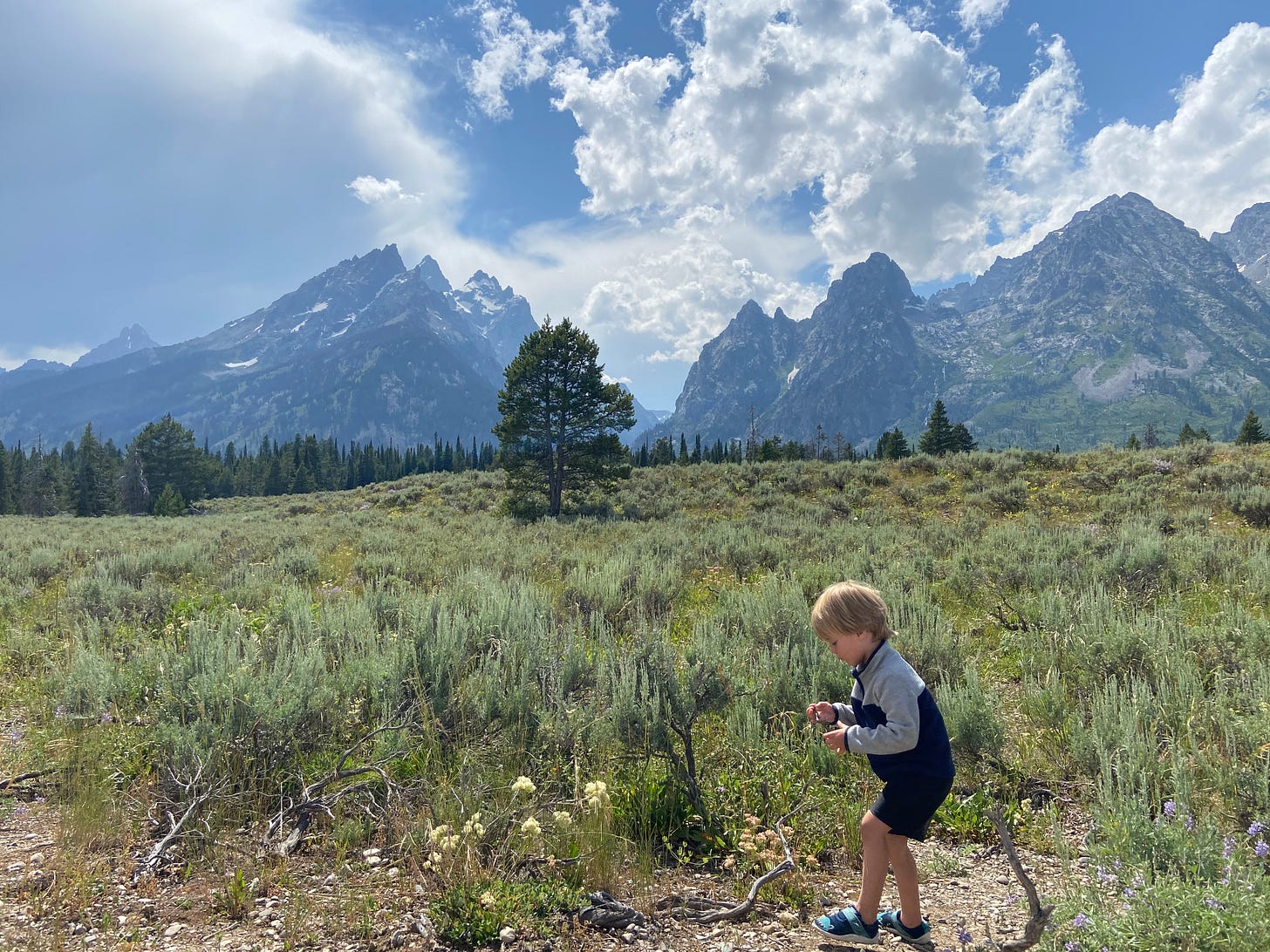Six months
This is Western Coffee—notes on building the creative body. Last time: Agency. The whole series is here. Please share this email; you can sign up free below.
The only language I’ve found to get to what it’s like, all this death, is music.
Monday was six months from the deaths of my brother, Sam, and his son, Adlai. This weekend I’ll be in San Diego to remember my friend Ryan, who died in August, and to see the brothers of my cousin Max, who led this year’s tide of loss in our family with his sudden death in the spring. Then I’m going on to Utah for Thanksgiving—a holiday we observed for many years with relatives on my mom’s side, who are mourning the loss at 97 of our matriarch, my Grandma Bean.
My feelings about it find expression when I’m improvising at (or really improvising with) my piano, which was built in 1930 and has thus seen some shit. And on Monday, my beloved friend Liz took me to a performance of Anton Bruckner’s Fifth Symphony at Carnegie Hall. My forever review of the musicians of the Berlin Philharmonic is: They get it. As it happens, the last time I saw them live was in their hometown, in 2019, with my ex-boyfriend. His early-Covid vanishing into the cross-Atlantic ether cut grooves in my heart deep enough that Sam’s and Adlai’s deaths—infinitely greater in weight—actually found less flesh left to cut through. I’ve come to think of that other grief as meaningfully anticipatory, a sharp warning that it was necessary to build a life that could survive in devastation.
The Berlin Philharmonic is as good as an orchestra gets—maybe the best, for its fusion of competence and feeling. But I also like it for my own narrower reason, which showed up at a performance of a Brahms piano concerto a dozen years ago in the startling fantasy of the Philharmonie building at the edge of the Tiergarten: The orchestra channels grief into everything. It knows (and I do believe an orchestra has a level of consciousness, in addition to those of the players) that loss is a tone in the depthless background color of the universe, that you could no more remove it from our bodies than hydrogen. To hear the ensemble’s sound again was to see a circle drawn around five stark years of losing things.
The reason music works so well as a language of grief is that it’s not exclusive. In a single chord change, an unexpected turn of melody, the addition or removal of a dissonance, or—a Bruckner special—an unprepared modulation, it can capture everything that lives alongside grief, which is everything. We know instinctively (far below the level of belief) that anything we love is something we’re going to lose. If we’re lucky enough to love life itself, if we have that privilege, then the loss extends as far as the eye can see. That’s why grief can be present always, everywhere, and yet sometimes be invisible—because it’s coextensive with love. They trade command of our attention. And it is a trade.
Carnegie Hall is two blocks from Central Park, where I’ve spent dozens of hours listening to radical symphonists (for nerds, there’s a great Reddit thread on Bruckner vs. Mahler) and running up and down hills and refilling my hydration vest at a slow-flow fountain in view of the Temple of Dendur. When I was a new runner, at the end of 2021, I wrote something about the loss I was then living with. To read it now further erodes the case for linear, one-direction temporality (not that it needs to be eroded, since it’s ascientific). This person was writing about something more than a breakup:
Movement, in particular, which I think sometimes gets a reputation as a means of escape—movement was the landing spot for all that emotion, the point of arrival. Movement was a site of healing, and the healing began with sometimes harrowing exposure. I remember on one of my first runs across the Williamsburg Bridge (one of my first runs ever), pain presenting in my legs that I knew was the pain of my heart—knowing that, as I felt it, and continuing to run, and feeling the strands of grief start to pull at themselves just a bit, to let up their first sigh of loosening.
The grief is still big enough that nothing else can contain it, which means the grief is the container. The tyranny of this would be too much were it not for what else turns out to be true: that the container is just a container. It is possible to build within the space of grief without much limitation. In its shadow but also in its capacious protection, like a stand of old trees, and with the knowledge that every little triumph here is its defeat—that it will participate in its own unmaking, in the slow decease of its relevance.
I think sometimes about the hill we were on, he and I, about what’s happening there in that alternative history. But I’m on a different hill now, one I could come to only on my own, and of course the wonders here are unlike the wonders anywhere, things you couldn’t stomach the tragedy of not seeing had you not seen them. I often catch an unobstructed sunrise from my kitchen windows. It’s not metaphor, it’s just what it is: the new day. Not really much at all like the others.
Kindly send me your thoughts, questions, and provocations: dmichaelowen@gmail.com. And say hi on Instagram.



